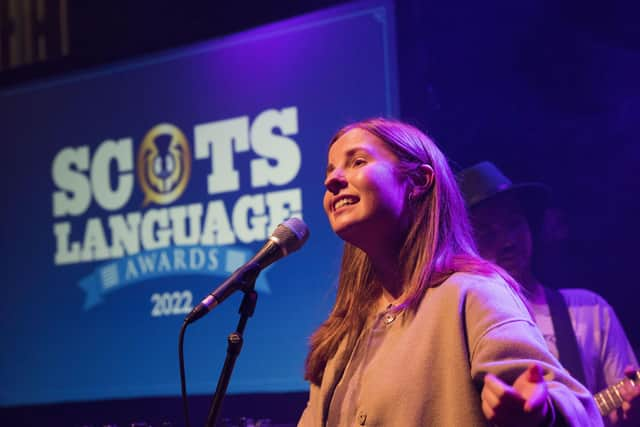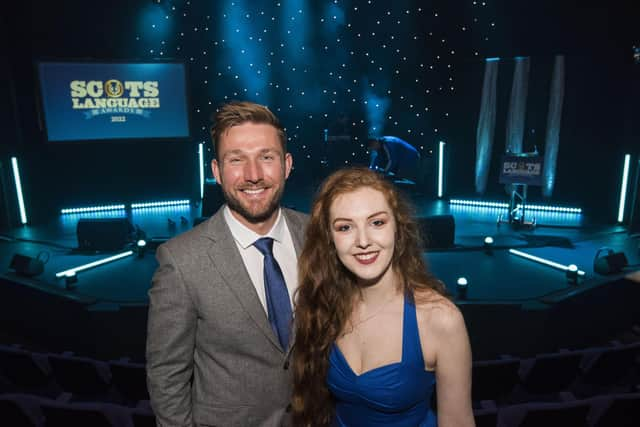Scotland's traditional music and culture is experiencing a renaissance – Brian Ferguson
The unofficial after-party of the Scots Language Awards has turned into a series of rousing singalongs – loud enough to compete with the bar’s usual Saturday night soundtrack.
Earlier in the evening, the city’s Gardyne Theatre had seen stand-up comedy, poetry, music and song brought together one the one roof at an awards ceremony which raised the spirits and also intriguing new questions about where traditional Scottish culture may be heading.
Advertisement
Hide AdAdvertisement
Hide AdMany of those to take to the stage – including presenters Alistair Heather and Len Pennie – have become prominent figures in Scotland in a relatively short period of time, thanks partly to the power of social media, but also down to their undoubted passion for the Scots language and Scottish culture in general.
This year’s awards reflected the impact made by the rising stars of TikTok and Instagram, including the best Scots performer winner, Alan “Bundy” Reid, and media award winner, Paul “Doric Dad” Hourston.
But as I emerged from the pub after-party in Dundee, it struck me that there is something much bigger going on at the moment, which is raising the profile of traditional music, song and historic languages to new heights.
The night before the Scots Language Awards, the Inverness band Elephant Sessions – who have gone from playing pub gigs to firm festival favourites since forming a decade ago – sold out the Barrowland Ballroom in Glasgow.
A notable absentee from the awards, the fiercely ambitious singer Iona Fyfe, who boasts more than 40,000 followers on her social media channels, had the reasonable excuse of being on tour in the United States.


Fyfe is one of a generation of outstanding young singers in growing demand. Another, Beth Malcolm, who opened the Scots Language Awards, has been wowing audiences performing with the Skye electronica band Niteworks, another groundbreaking group smashing through traditional barriers between musical genres in Scotland.
They are one of many bands with trad scene roots who can fill halls, venues and festival tents across Scotland.
Another notable example, Skerryvore, are currently touring Canada, while fellow Hebrideans Peat and Diesel have been selling out shows across the UK all year and Skipinnish put on a huge big top show in Stirling last month.


Advertisement
Hide AdAdvertisement
Hide AdAmong the more memorable sequences of last month’s Royal Edinburgh Military Tattoo were the Skipinnish anthem Walking on the Waves and a rendition of the late Martyn Bennett’s track Blackbird, inclusions of contemporary music which would have been unthinkable a few years ago.
The same could be applied to Hoolie in the Hydro, a festive season shindig billed as Scotland’s biggest ever ceilidh, which Skerryvore, Dougie MacLean, Mànran and Trail West are all due to appear at.
Either side of that extravaganza will be two events which have done more than most to fuel the current boom – by raising the profile of artists and helping them to gradually build their audiences.
The respective legacies of the Scots Trad Music Awards, which will celebrate its 20th edition in December, and Celtic Connections, which will transform Glasgow’s venues for the 30th year in January, are well worth rousing celebrations of their own.
Comments
Want to join the conversation? Please or to comment on this article.

